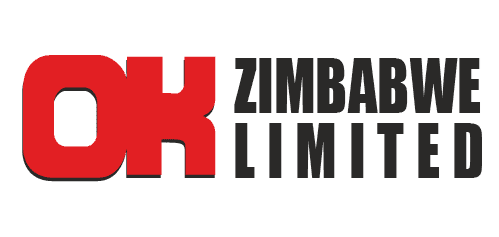50/50 on QPD tax payment not mandatory
. . .Treasury announces tax system review
Reserve Bank Governor Dr John Mushayavanhu says plans by Treasury to overhaul the country’s tax system will be more effective in stabilising ZiG, than relying on QPDs that come once every quarter.
On Wednesday, the Ministry of Finance, Economic Development and Investment Promotion, announced plans to enact regulations that will require businesses to settle specific taxes in ZiG.
“As part of the comprehensive review of the Framework of Tax Payments, Treasury will, in due course, specify the taxes which will exclusively be payable in local currency, and the necessary supportive legislation, with requisite approval by Parliament,” said the Minister of Finance, Economic Development and Investment Promotion Mthuli Ncube in a statement.
Part of the statement also noted that Treasury is currently working on a comprehensive review of the Framework of Tax Payments to ensure a seamless transition from exclusive payment of taxes in the currency of trade to local currency.
Further, the review also aims to re-align the legislative requirements, in particular, where the currency of trade is specified by legislation.
This policy thrust has been welcomed by the central bank governor Dr Mushayavanhu, who said it is more effective than relying on QPDs.
Responding to this publication, the apex bank boss said the plan to pay specific taxes in ZiG “is more effective given that QPDs only come once every three months whereas specific tax heads are ongoing which means that there will be sustained and uninterrupted demand for ZiG.”
The Treasury statement has, however, also given a reprieve to companies that were looking to pay half their QPDs in ZiG as per the central bank’s announcement and previous pronouncement by Dr Mushayavanhu.
The RBZ governor was quoted by our sister publication The Sunday Mail, in this week’s edition, saying businesses “are expected to pay at least 50 percent of the income tax due in ZiG”.
“The requirement to pay 50 percent of June QPDs in ZiG is expected to further boost domestic currency demand and consolidate the exchange rate stability currently obtaining in the economy,” said Dr Mushayavanhu.
“By and large, the ZiG:US dollar exchange rate is expected to strengthen around the QPDs period and in the near term.”
Treasury’s statement, however, appears to suggest that paying 50 percent of QPDs in ZiG will not be compulsory.
While Treasury’s authority has been granted for corporates to account for the 2024 Second Quarter Corporate Income tax obligations in both local and foreign currency on a 50:50 basis, Corporate Income Tax payments for the 2nd Quarter that have already been made in accordance with the current legal provisions should be treated as having fully complied, Treasury said.
“Similarly, corporates that opt to continue with current legislative provisions should also be treated as fulfilled their tax obligations,” reads part of the memo sent to the Zimbabwe Revenue Authority (ZIMRA) by the Permanent Secretary in the Ministry of Finance, Economic Development and Investment Promotion, George Guvamatanga.
The current legislative provisions under Section 4A of the Finance Act (Cap.23:04), provide for payment of tax in the equivalent proportion of currency of trade.
Such a law, cannot be changed without Parliament as it is a Principal Legislation, according to Guvamatanga. “So we have to manage everything administratively,” he said in response to Business Weekly enquiries.
With corporates now allowed to continue paying QPDs as per Section 4A of the Finance Act, it means the 50:50 basis as advocated for by the central bank is now optional, according to Guvamatanga.
“…but you have the option to do 50:50”.
While some welcomed Treasury’s tax plans, others expressed concern with the suggestion to specify currency of payment for various taxes “as having multiple currencies already imposes significant accounting and compliances burdens on business and individuals”.
“Operating multiple currencies is already a tax in itself. They should just say pay in the currency transacted or in ZiG for all domestic taxes and leave it at that,” said economic analyst Walter Mandeya of Trigrams Investment.
“If Treasury wants to support the ZiG, they should direct government services offered domestically to be settled primarily in ZiG as this will resolve the issue almost immediately,” Mandeya said.-ebusinesswekly










